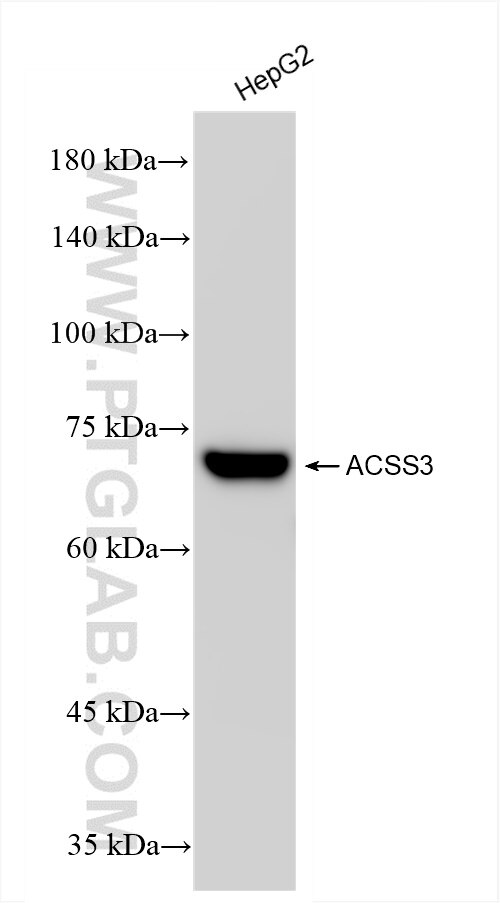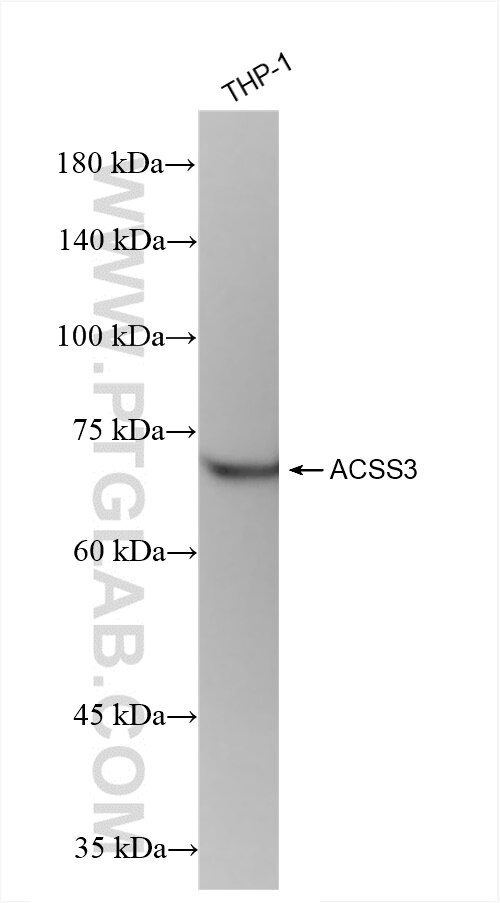Validation Data Gallery
Tested Applications
| Positive WB detected in | HepG2 cells, THP-1 cells |
Recommended dilution
| Application | Dilution |
|---|---|
| Western Blot (WB) | WB : 1:2000-1:16000 |
| It is recommended that this reagent should be titrated in each testing system to obtain optimal results. | |
| Sample-dependent, Check data in validation data gallery. | |
Product Information
84810-4-RR targets ACSS3 in WB, ELISA applications and shows reactivity with human samples.
| Tested Reactivity | human |
| Host / Isotype | Rabbit / IgG |
| Class | Recombinant |
| Type | Antibody |
| Immunogen | ACSS3 fusion protein Ag9173 相同性解析による交差性が予測される生物種 |
| Full Name | acyl-CoA synthetase short-chain family member 3 |
| Calculated molecular weight | 686 aa, 75 kDa |
| Observed molecular weight | 70-75 kDa |
| GenBank accession number | BC009317 |
| Gene Symbol | ACSS3 |
| Gene ID (NCBI) | 79611 |
| Conjugate | Unconjugated |
| Form | Liquid |
| Purification Method | Protein A purfication |
| UNIPROT ID | Q9H6R3 |
| Storage Buffer | PBS with 0.02% sodium azide and 50% glycerol , pH 7.3 |
| Storage Conditions | Store at -20°C. Stable for one year after shipment. Aliquoting is unnecessary for -20oC storage. |
Background Information
ACSS3(acyl-CoA synthetase short-chain family member 3, mitochondrial) belongs to the ATP-dependent AMP-binding enzyme family. It activates acetate so that it can be used for lipid synthesis or for energy generation. The deduced 686-amino acid protein contains 4 of 5 motifs characteristic of acyl-CoA synthetases. This protein has 2 isoforms produced by alternative splicing. The full length protein has a transit peptide with 29 amino acids.
Protocols
| Product Specific Protocols | |
|---|---|
| WB protocol for ACSS3 antibody 84810-4-RR | Download protocol |
| Standard Protocols | |
|---|---|
| Click here to view our Standard Protocols |

